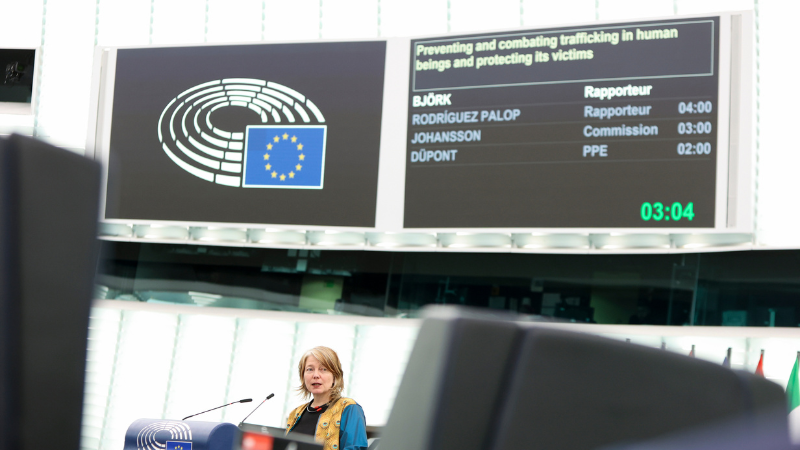On Tuesday, the European Parliament took a significant step in the fight against human trafficking by adopting a new law that broadens the scope of current legislation beyond labour and sexual exploitation.
This is a crucial development, especially since Malta has received multiple calls to act on this issue.
The law, which was adopted with an overwhelming majority of 563 votes in favour, seven against, and 17 abstentions, aims to combat not only labour and sexual exploitation but also other forms of trafficking, such as forced marriage, illegal adoption, and the exploitation of surrogacy.
The new law contains important provisions to combat trafficking and protect its victims. It seeks to improve coordination between anti-trafficking and asylum authorities to ensure that trafficking victims who require international protection receive appropriate support while their right to asylum is upheld.
The law also criminalises the use of services provided by trafficking victims if the user knows that the victim is being exploited. This aims to reduce the demand that drives exploitation.
Companies convicted of trafficking will face penalties, including exclusion from tendering processes and reimbursement for public aid or subsidies.
Prosecutors will also have the discretion not to prosecute victims for criminal acts they were coerced into committing. The law will further support victims, including access to shelters and safe accommodation, with a special focus on the most vulnerable groups.
Despite making significant efforts over the years, according to the 2023 Trafficking in Persons Report by the US State Department, Malta has failed to fully meet the minimum standards for the elimination of human trafficking.
According to the report, there were no convictions of traffickers for the two years in a row. Moreover, the report found there were gaps in victim identification, and the government did not report any Maltese children, asylum seekers, or undocumented migrants being identified as victims of trafficking.
Additionally, labour regulations were not effectively enforced to prevent recruitment fees charged to workers, which increased their vulnerability to trafficking, and the government made no concrete efforts to increase oversight and regulation of massage parlours, which had a higher incidence of trafficking indicators.
In 2021, the Council of Europe’s expert group, GRETA, also called on Malta to step up its fight against human trafficking, including by ensuring that cases are investigated proactively and thoroughly, resulting in sanctions that serve to deter potential traffickers.
Malta remains a destination for trafficked persons, according to the GRETA report.
Following the vote in the European Parliament, the European Council must formally approve the agreement. After that, member states will have two years to implement its provisions.












